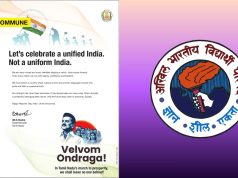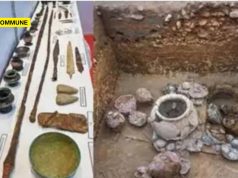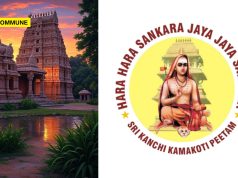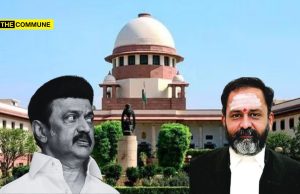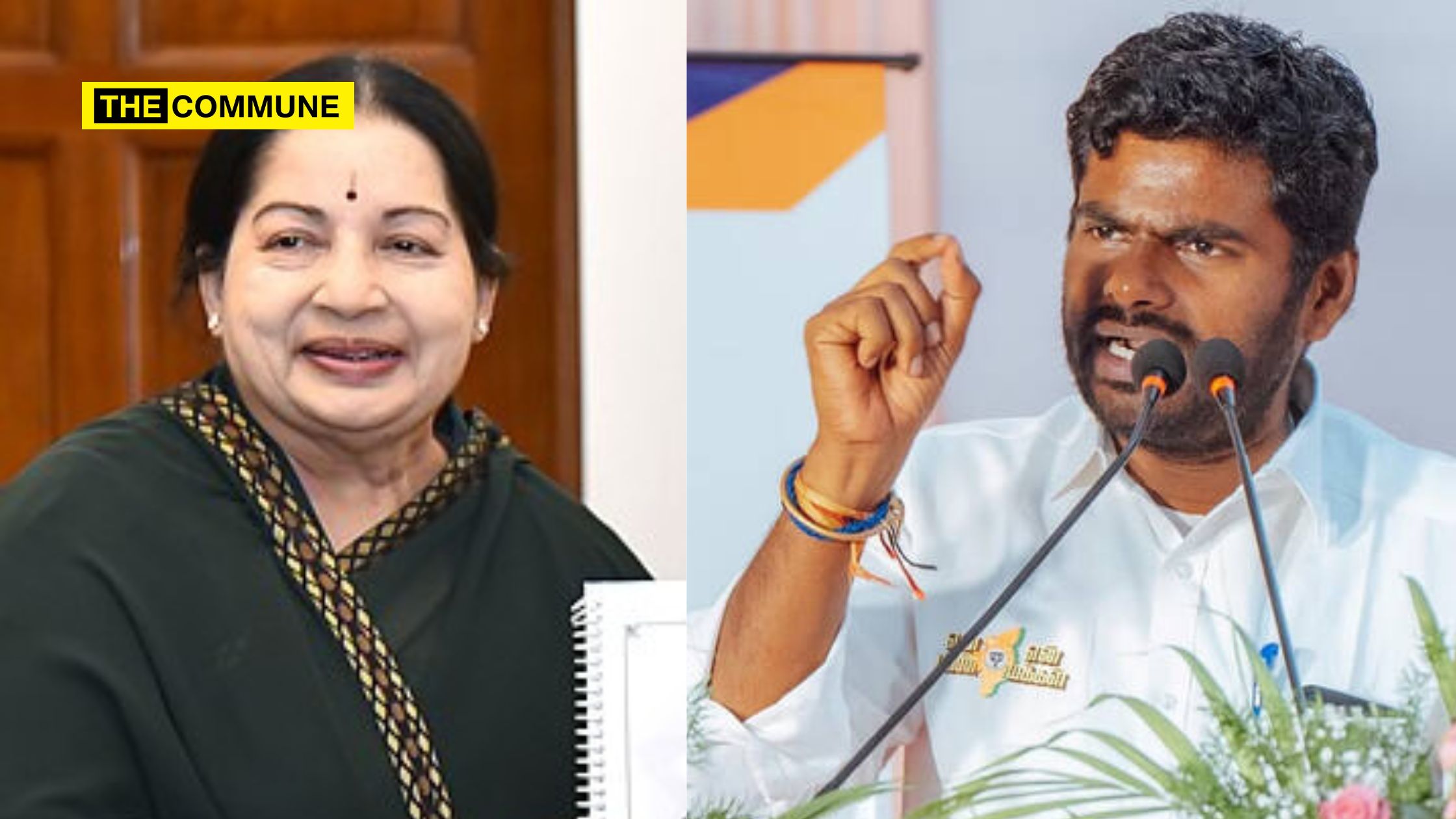
Tamil Nadu BJP President K Annamalai recently praised AIADMK’s late leader J Jayalalithaa, stating that she excelled as a proponent of Hindutva ideology in the state. He emphasized that until her passing, Jayalalithaa stood out as a formidable figure in championing Hindu interests, even surpassing other leaders in Tamil Nadu. Annamalai highlighted her support for causes like the construction of the Ram temple in Ayodhya and the implementation of an anti-conversion law in Tamil Nadu during her tenure.
In an interview with PTI, Annamalai asserted his determination to elevate the BJP’s position in Tamil Nadu’s political landscape, underscoring the opportunity presented by the perceived departure of AIADMK from Hindutva principles after Jayalalithaa’s era. Annamalai asserted, “Now, if you look at it, sir, till Jayalalithaa ji was alive, she was a far superior Hindutva leader than anybody in Tamil Nadu. Pre-2014, when you have a party like the BJP and Jayalalithaa as a leader, the natural choice of a Hindu voter would be Jayalalithaa, who displayed her Hindu identity openly.”
However, Annamalai’s remarks sparked dissent among present and former AIADMK members, including Jayalalithaa’s close associate VK Sasikala, who countered the assertion by emphasizing Jayalalithaa’s stance on religious equality. The debate escalated further, with various leaders, including former Fisheries Minister Jaya Kumar, weighing in on the matter.
In response, Annamalai cited Jayalalithaa’s parliamentary speeches supporting the Ram temple construction and her endorsement of Hindutva causes. This led to a contentious exchange between the BJP and the AIADMK.
On 27 May 2024, Annamalai reaffirmed that the former chief minister J Jayalalithaa was deeply aligned with Hindutva ideology. Leading a gathering of BJP district secretaries and state-level officials at the party headquarters in Chennai, Annamalai highlighted Jayalalithaa’s past actions, stating, “In 1993, Jayalalithaa spearheaded a signature campaign advocating for the construction of the Ram Temple, garnering 20 lakh signatures. Moreover, in 2003, she voiced her stance that the Ram Temple should be built in India.”
Post the session, Annamalai emphasized to the press that Jayalalithaa epitomized a strong proponent of Hindutva principles. “Back on 26 July 1984, during her tenure as a Rajya Sabha MP, Jayalalithaa spoke out against Article 370 of the Indian Constitution, which granted special status to Jammu and Kashmir. Today, one might question AIADMK’s position on Article 370,” Annamalai remarked.
Referring to Jayalalithaa’s initiatives, including her opposition to the Anti-Conversion bill and the establishment of Vedha Padasalai in 1991, Annamalai challenged any objections to labeling her as a Hindutva figure. “Why should there be any qualms in recognizing Jayalalithaa as a Hindutva leader?” Annamalai questioned. Citing Jayalalithaa’s endorsement of a uniform civil code in 2003 and AIADMK’s subsequent opposition to it in July 2023, the BJP state president underscored the shifts in political stances over time.
Despite the plethora of supporting references provided by TN BJP Chief Annamalai, former Fisheries Minister Jaya Kumar has unveiled an audio recording allegedly containing Jayalalithaa’s speech, albeit its authenticity remains dubious. The netizens mock the situation, noting that the audio released by Jaya Kumar seems to have been edited within 0.04 seconds.
இராமர் கோவில்-பாபர் மசூதி விவகாரத்தில் மாண்புமிகு அம்மா அவர்கள் உரை!
இரு மதங்களுக்கும் நடுநிலையாகவே தனது நிலைப்பாட்டை தெளிவாக தெரிவித்துள்ளார்.
இது தான் அம்மா அவர்களின் அன்றைய உண்மையான நிலைப்பாடு.
அந்த செய்தித்தாளில் வந்தது இந்த செய்தித்தாளில் வந்தது என அறமற்று கருத்துகளை… pic.twitter.com/d5QRdUpkB4— DJayakumar (@djayakumaroffcl) May 29, 2024
Is Jayalalitha truly a Hindutva leader as asserted by TN BJP President Annamalai? Yes, indeed. The Hindu reported that during her tenures as Chief Minister from 1991-96 and 2001-06, many of Jayalalithaa’s decisions resonated positively with the BJP. Just three months after the demolition of the Babri Masjid in December 1992, senior BJP leader LK Advani highlighted the growing mutual goodwill and rapport between his party and the AIADMK, citing Jayalalithaa’s speech at the National Integration Council (NIC) in November 1992 as a significant factor. This speech, where Jayalalithaa advocated for creating a congenial atmosphere for the conduct of “kar seva” in Ayodhya, was extensively discussed in the state for months.
Even in the Assembly on 18 March 1993, Jayalalithaa’s stance on the issue was brought up, with allegations that she favored the “kar seva.” However, she clarified that she sought resolution through legal means and conditions conducive to building a temple. Her commitment to the cause was evident when she questioned how her party strayed from the Dravidian movement, firmly asserting her adherence to its principles. Even a decade later, in an interview with the media, Jayalalithaa queried, “If we cannot build a temple in India for Lord Ram, where else can we build it?”
Jayalalithaa’s actions spoke volumes as well. During her first term, she assumed the portfolio of Hindu Religious and Charitable Endowments, showcasing her dedication to her faith. Her administration also introduced the Tamil Nadu Prohibition of Forcible Conversion of Religion Act, 2002, and attempted to enforce laws against animal sacrifice in temples, though met with opposition. The ‘Anna-Dhanam’ scheme was brought under her government.
During an interview with India Today, when asked about her stance on Ayodhya, Jayalalitha responded firmly, stating, “I haven’t changed my position or contradicted myself. I’ve simply echoed what the Congress(I) has stated in its manifesto – advocating for the construction of the temple while preserving the mosque. How can I be accused of inconsistency? I’ve emphasized the importance of respecting the sentiments of the majority and allowing them to build a temple there. It’s the responsibility of the central government to create a conducive environment for the kar seva.”
When confronted with the interviewer’s suggestion that her recent emphasis on religion contradicts Dravidian ideology, Jayalalitha countered, saying, “How so? In Karunanidhi’s interpretation of Dravidian ideology, it seems to imply gaining the majority vote to attain power and then disregarding their sentiments. We must protect the rights of minorities, but the majority also holds constitutional rights that must be respected.”
Subscribe to our channels on Telegram, WhatsApp, and Instagram and get the best stories of the day delivered to you personally.

